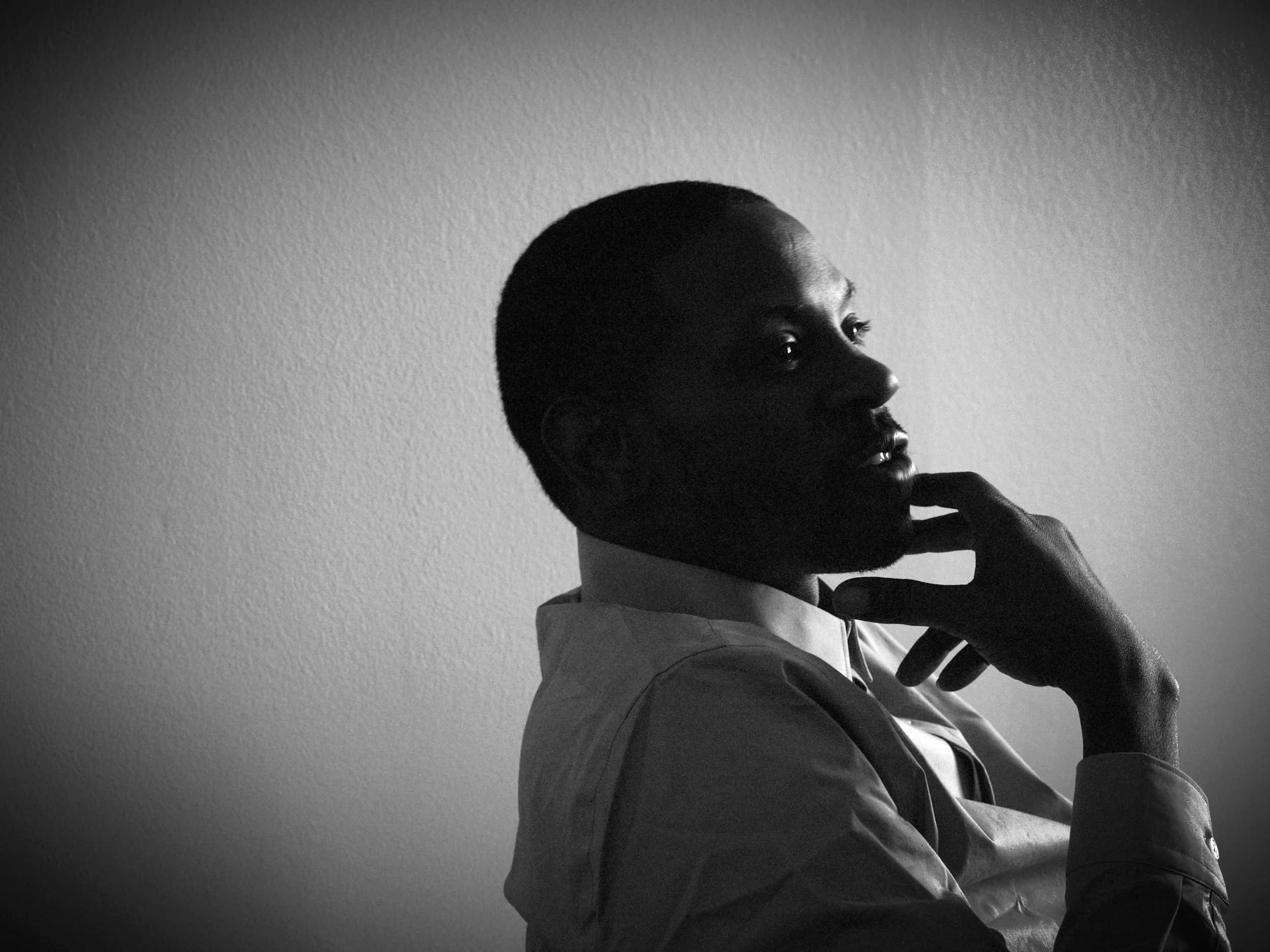
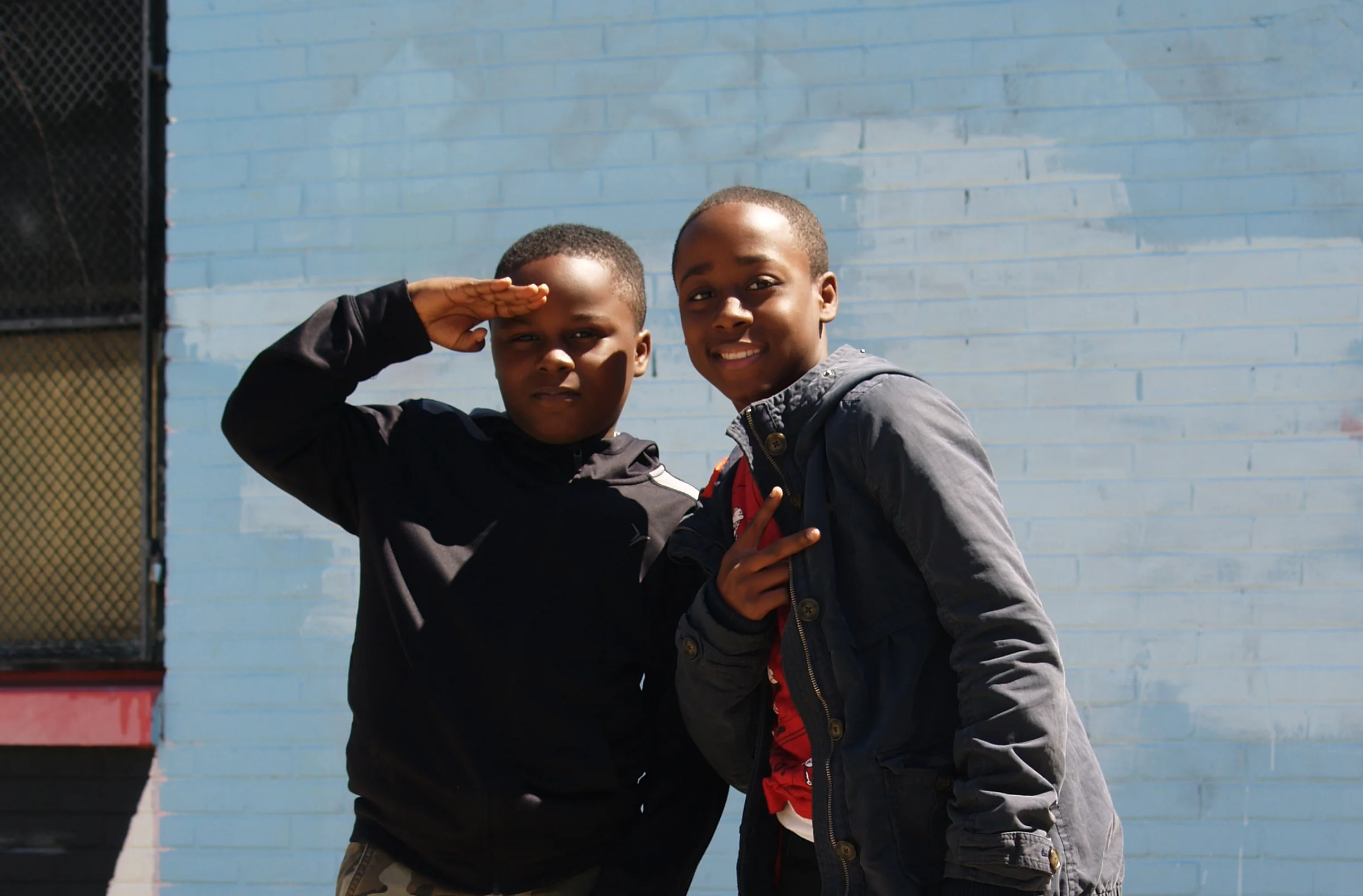

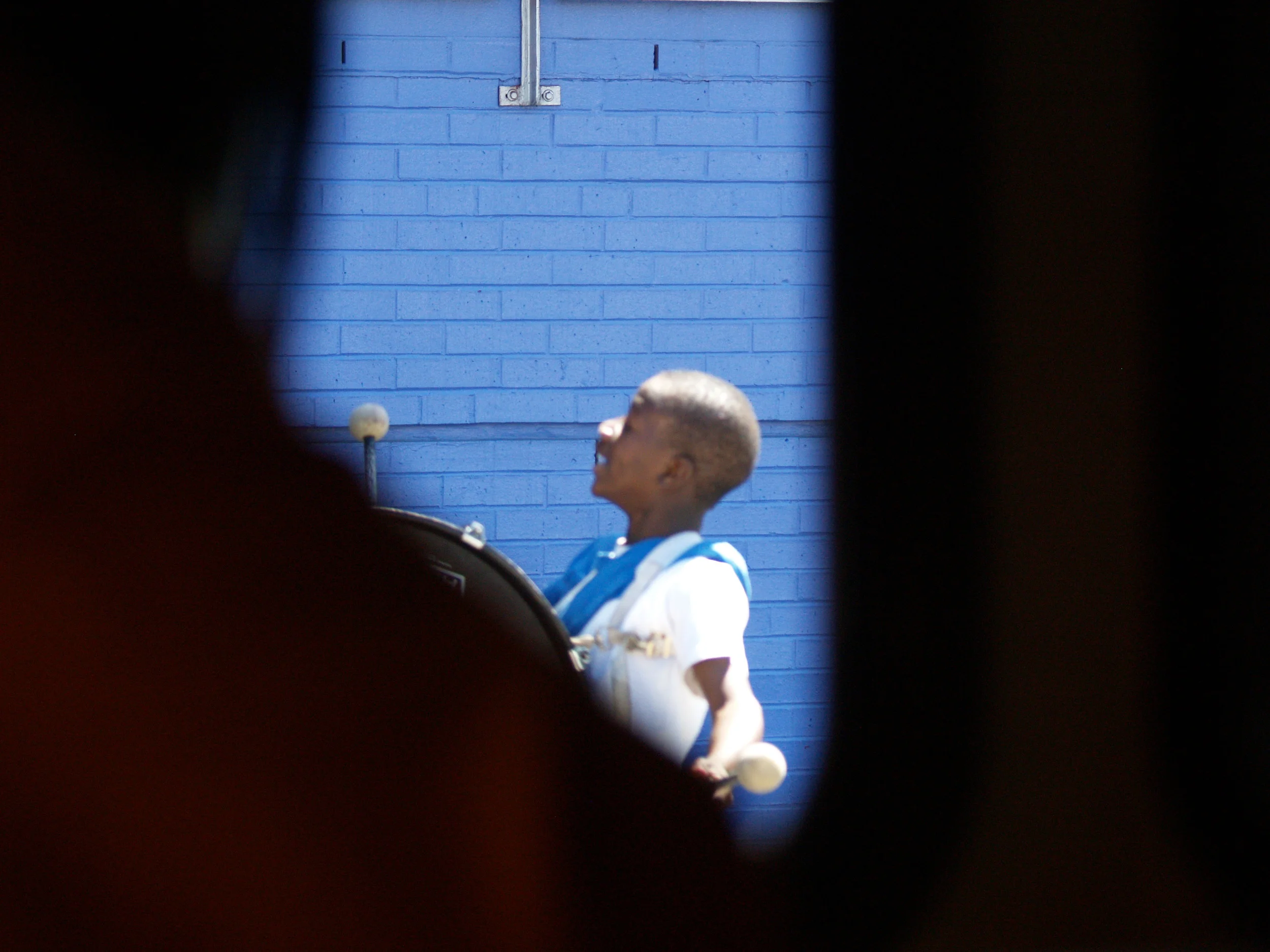
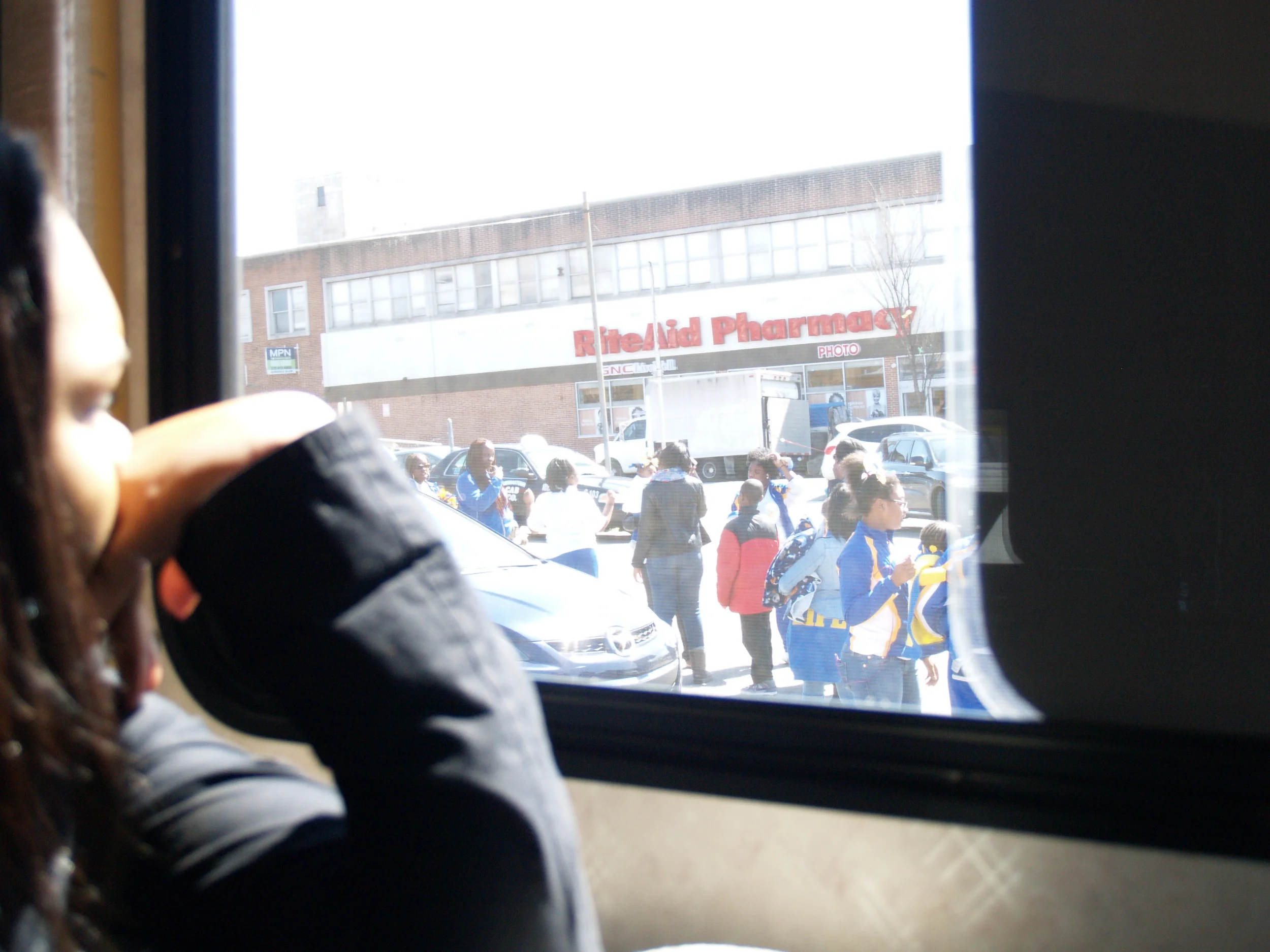
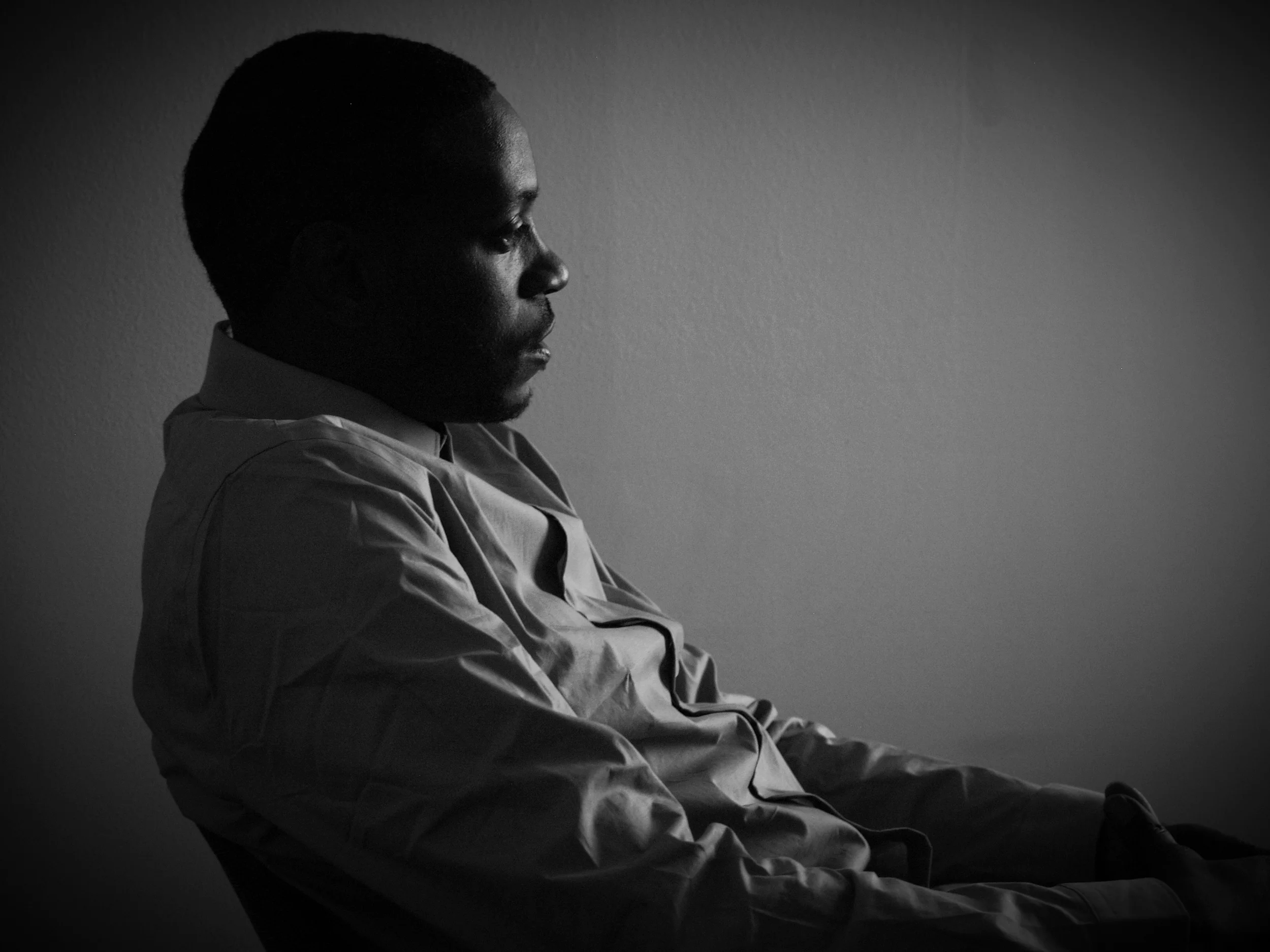
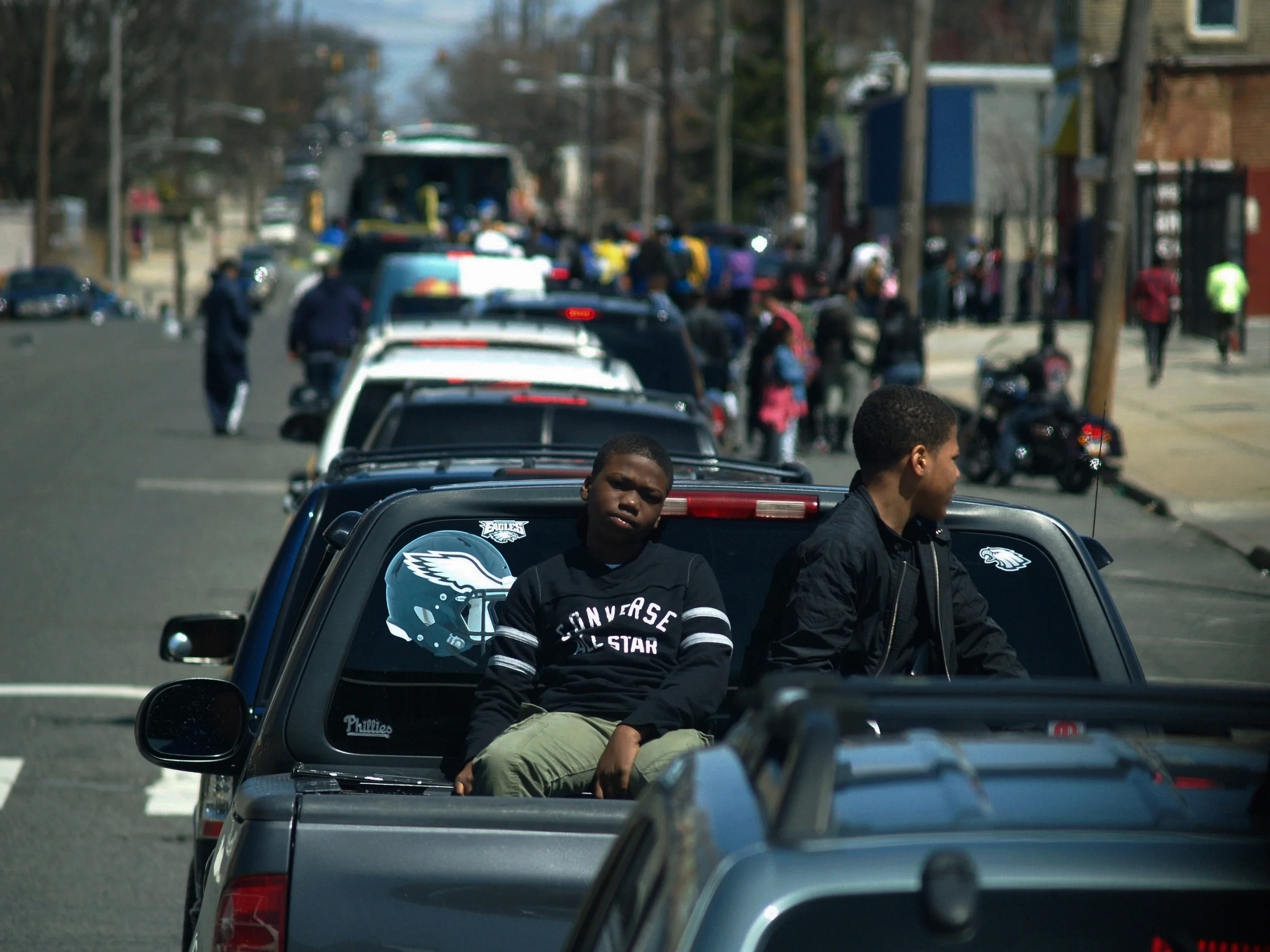
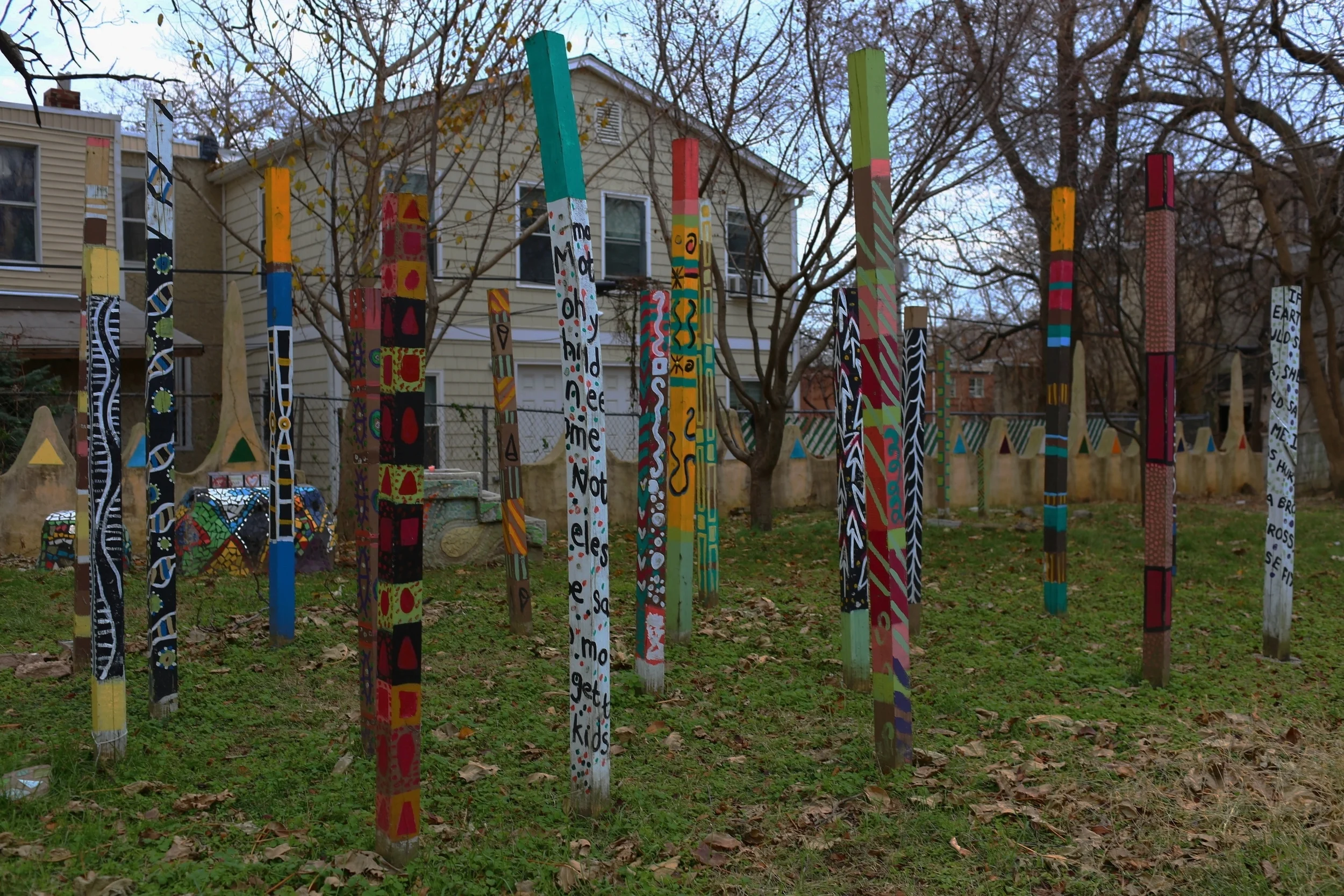
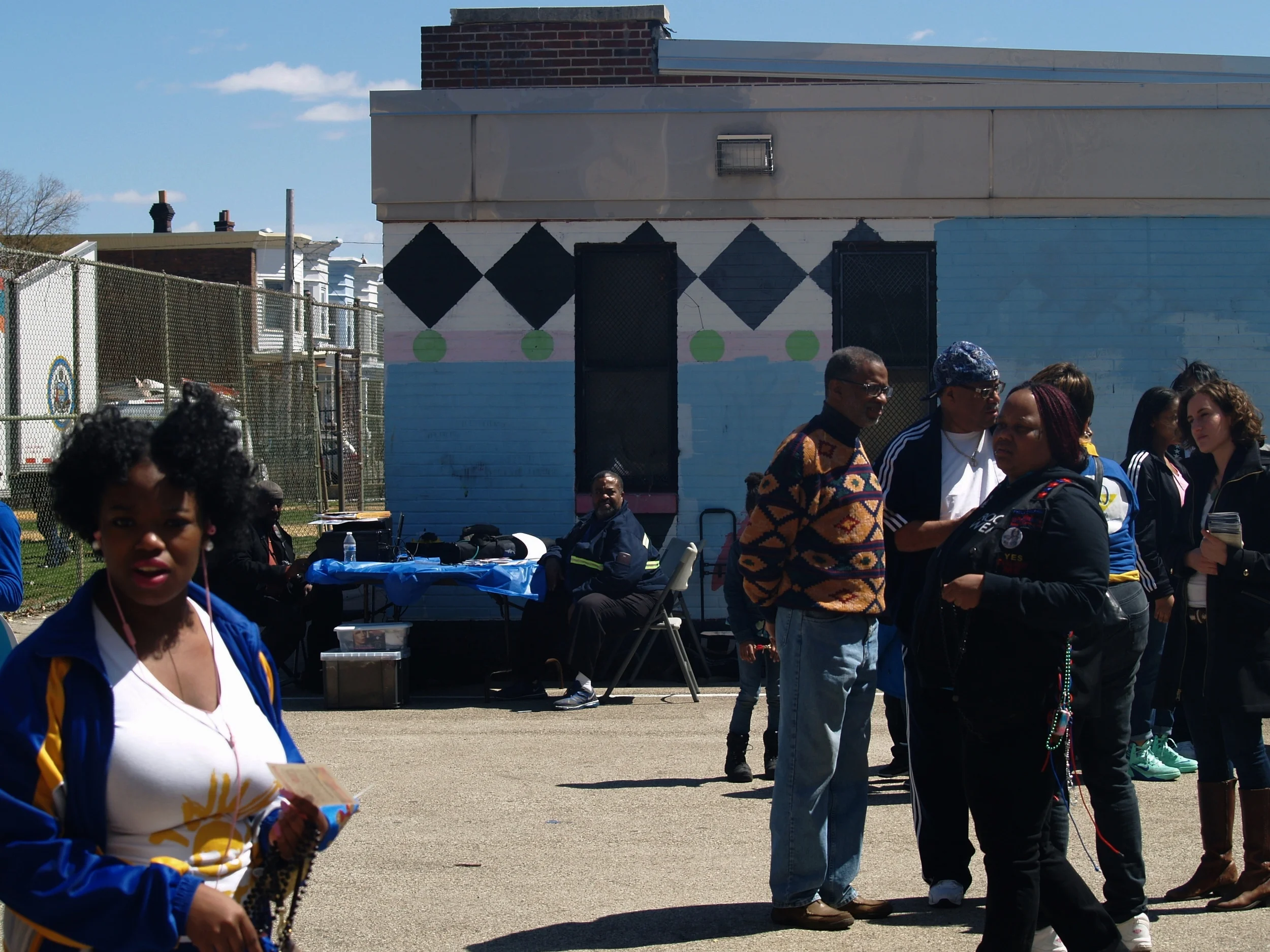
Grady morgan
North Philadelphia
Grady Morgan has lost more than a few loved one to gun violence, and he says hearing that someone died began to lose its shock value for him. Grady believes part of the reason so many kids get involved in the violence is that they spend so much time on the street - trying to make money, hanging with friends, playing around, and sometimes trying to escape what’s happening at home. Eventually, the street feels more like home than their own homes.
Putting an end to gun violence is a little more complicated than putting the bad guys behind bars. In fact, Grady says it’s hard to tell who the good and bad guys even are, especially when it comes to the police. He recounts incident after incident where police intervention only exacerbated the problem at hand.
As a mediator at Philadelphia CeaseFire, Grady spends his days talking to kids about how his life has been affected by gun violence over the years, and he hopes that they can learn from his mistakes. Grady recollects painful memories of all the people he’s lost, and he’s an expert on gun violence in his North Philly neighborhood. He knows most of his community members by name, who the major players on the streets are, and that you need to earn respect if you want anyone in the community to take you seriously. Most importantly, Grady knows that fear won’t fix the damage gun violence has wreaked on his city. “We’ve gotta do that,” he states firmly.
Ain’t No Love
“Ain't no love. I ain't gonna lie, ain't no love … People will be together every day; they hang together, they drink together, they share clothes … They do everything together! They stand on the corner for 12 hours in the same spot together. But at the end of the day, if you all can't get any money together or try to come up with an idea that is going to lift all y’all up out of the same spot it's never going to work for any of y'all. That's just how I look at it. You might as well give it up because [it’s like] crabs in a barrel. Everybody is pulling each other down trying to get out of the barrel.
“I know people gotta go on with their life but I don't know if there is even really much that people can do unless we come together as a whole. [There’s] nobody stopping what they’re doing to be really worried about what somebody else is doing unless they see everybody is doing it [too].
“You [go] to funerals like all the time to the point of getting numb. It gets normal. I got a friend that I lost … a couple years ago. He was just real charismatic and cool, and I [wanted] a better life for him. They say life is about decision-making, and he just made a bad decision and it cost him his life. I think about him a lot.”
The Street
“I didn’t wanna hurt nobody. I only tried to hurt somebody if they tried to hurt me. … I just wanted money like … a lot of young guys [who I’m still around] because I work at this job and I still live in the urban neighborhoods. [They’re] the ones that’s lost, that’s not going to go nowhere … no drive, no ambition or nothing. They don't see themselves being nowhere. [The streets are] kind of like family more than your own family, because you’ll be in the streets more than at home.
“I’ve been locked up for attempted murder. I've been locked up for homicide … I’ve been locked up for gun charges. It’s public record you can just go look it up. I was blessed to find this job after I got home from jail … I [was in] jail for a drug case and it wasn’t even my case … but just keeping yourself in that environment - all three of us ended up getting locked up.”
Family
“My mom’s always been in my hair - she always believed in me, she never gave up on me, she paid for lawyers, she paid bills, you know. I knew friends' moms that just gave up. Like ‘leave them in there.’ … My mom never left me … and that counted for a lot.
“When I came home, I just woke up … I had to wake up and say, ‘If you keep doing this, you’re going to die, or end up murdering somebody.’ … Then when I had my daughter it was like things really slowed down. [Before] it was just about money and things … Now it’s like, man, you just gotta get a job. It’s over. Get your life together … I got a lot of people counting on me, and I got a child so I gotta pave a way for her … She don't even know my past. I’m a whole different person to her.
“You know, some people get mad when you talk about your family a lot … especially in these neighborhoods, because their families is broken up … [But] my family was like my crutch. And then my daughter just gave me something to just say like ‘I gotta be your father’ - something to live for.”
In the Middle of a Playground
“Cops, they don't got no respect for their neighbors. Like I'mma let me tell you a story about the other day. I was at work. It still be hot in the neighborhoods, even though we have work. They know our orange shirt, but they still walk up on the corner while I'm out there. They harass everybody I'm with. So they don't give us all the respect that we need … When you see an orange shirt, you should be like ‘Dang, he probably out there mediating something. Let me ask him is he alright.’ You're a public servant. You work for the public. [But] you don't even ask people is they alright. You just come up profiling, you know?
Preserving Life
“Everybody basically knows me, so I can walk around and move around easy … I just got a job, ain't nothing changed - I'm still the same person, it's just I ain't out there with them on the corner. But they respect when I come up … I can still kick it and y'know, rub shoulders with them. When the situation’s too hot and they doing something I don't like [drugs-wise], I gotta get outta there. But if it's a violent thing, [I’ll] always try to come in and try to stop that before the gun fire. I was doing that before I even had this job though, because I believe some stuff is just senseless.
“When you start to talk you gotta have some type of credibility so they know that you’re understanding where they coming from. And then you just ease your way in the situation, you don't just tell them what to do. You find your way to the root of the problem, you find out how did it start. [Then I’m gonna] really make you feel like you ready to do the dumbest thing ever … Sometimes [I] come off harsh but … I'm not there to be like ‘Aw man, you shouldn't do that’ … I’m gonna be like ‘Dude, you acting nutty, man.’
“We tryna mentor them and stop them from doing something. We not tryna get them locked up, that's the cops' job. They get paid to do a job, we get paid to try to preserve life.”
- - - - - - - - - - - - - - - - - - - - - - - - - - - - - - - - - - - - - - - -
Interview by Dan Kurland and Dionysia Sotiropoulou | Text by Jonnell Burke | Portraits by Alexander Atienza | November 2015